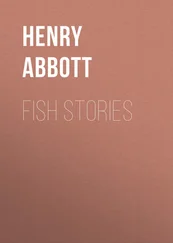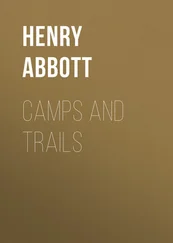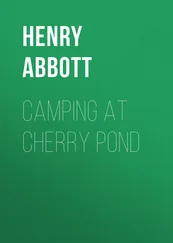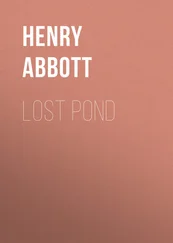Henry Abbott - Muskrat City
Здесь есть возможность читать онлайн «Henry Abbott - Muskrat City» — ознакомительный отрывок электронной книги совершенно бесплатно, а после прочтения отрывка купить полную версию. В некоторых случаях можно слушать аудио, скачать через торрент в формате fb2 и присутствует краткое содержание. Жанр: foreign_antique, foreign_prose, Историческая проза, на английском языке. Описание произведения, (предисловие) а так же отзывы посетителей доступны на портале библиотеки ЛибКат.
- Название:Muskrat City
- Автор:
- Жанр:
- Год:неизвестен
- ISBN:нет данных
- Рейтинг книги:4 / 5. Голосов: 1
-
Избранное:Добавить в избранное
- Отзывы:
-
Ваша оценка:
- 80
- 1
- 2
- 3
- 4
- 5
Muskrat City: краткое содержание, описание и аннотация
Предлагаем к чтению аннотацию, описание, краткое содержание или предисловие (зависит от того, что написал сам автор книги «Muskrat City»). Если вы не нашли необходимую информацию о книге — напишите в комментариях, мы постараемся отыскать её.
Muskrat City — читать онлайн ознакомительный отрывок
Ниже представлен текст книги, разбитый по страницам. Система сохранения места последней прочитанной страницы, позволяет с удобством читать онлайн бесплатно книгу «Muskrat City», без необходимости каждый раз заново искать на чём Вы остановились. Поставьте закладку, и сможете в любой момент перейти на страницу, на которой закончили чтение.
Интервал:
Закладка:
Muskrat City
The Irish cook one day proposed to the ship's captain the following conundrum: "Is anny thin' lost whin yeez know where 'tis?" The Captain assured him that in such case the thing was not lost. And Dennis responded: "Well, thin, shure, the ta-kettle is safe, for 'tis in the bottom av the ocean."
Bige and I thought we were lost. We did not know the way to our destination. We did not know the way back home. But realizing that we were in the heart of the trackless forest, we knew we were perfectly safe.
We had eaten an early breakfast that morning at the "Dan'l Boone Camp." We had made sandwiches for lunch, wrapped them in paper, tied the packages on the sides of our fish baskets, and had started for Plum Pond, where we expected to do some fishing.
We had been walking five hours and had not yet reached Plum Pond. Indeed, we felt quite sure we had passed it, either on the right or on the left. Also, it was possible that we had been, for the last hour, going northwest instead of southwest. It was raining and we had not consulted the compass very often. It had been raining for the past three hours, and now the water was falling in a flood, and we were soaked to the skin. Our shoes were filled with water and as we plodded on it sloshed, sloshed, with every step. We were bewildered, but it would do no good to stop, or turn back, so we continued to push on.
Presently, as we passed over a ridge and climbed down the steep hillside, we saw a cleared place in the bottom of the valley. Bige exclaimed, "Gosh!! Well I'll be doggoned! If that ain't Muskrat City." The map makers had not discovered the place, and Bige had never heard of it, yet the instant he saw it he knew its name was Muskrat City, and it shall so remain unless an act of legislature changes it.
At the bottom of a deep valley, with steep hills on either side, in the center of a beaver meadow was a collection of a score or more of conical shaped mud huts, about two and a half feet high and three feet in diameter at the base. In each of these huts there lived a male muskrat, his wife and family of seven to nine children. There also were numerous bachelor muskrats, who lived by themselves in holes in the bank.
Lest some of our readers may not be acquainted with a "beaver meadow," let us explain that at some period of time, long ago, possibly two hundred or maybe five hundred years ago, beavers lived here and built a dam across the brook as all beavers do. The dam backed the waters of the brook up and flooded the floor of the valley, thus drowning all the trees which were not cut and peeled by the beavers. These trees, of course, fell and decayed, so that not even stumps or roots were left. In the course of time the beavers either were exterminated by trappers or they had exhausted their food supply in that valley and then emigrated to some other stream. In the absence of the builders, who must constantly make repairs, the dam had broken and the brush it contained had decayed. Only the stones and dirt used in its construction remained to mark the spot where it had once held back a beaver pond covering several acres. This space had remained swampy for some years and trees did not grow upon it. It was now covered with a rank growth of grass.
Many such places are found in the forest and they are always known as beaver meadows. They unquestionably mark spots where colonies of beavers once lived, though it might have been many years before.
The far-sighted, fore-handed pioneers who settled in the state of Iowa, with prophetic wisdom and civic pride of hope, loaded the labels of their communities with the word "City." After the lapse of eighty years, the last census showed twenty-three "Cities" in that state having less than one thousand inhabitants each. Of these, six have less than three hundred each. "Promise City" in eighty years has acquired two hundred and seventy-eight inhabitants, while "Walnut City" beats the record with thirty.
We then did not know, and we do not now know, how many inhabitants there were in Muskrat City, but we feel confident they outnumbered the citizens of some of the Iowa cities.
By the time we had reached the floor of the valley, rain ceased to fall and in a few minutes the sun was shining. We were not only wet but we now realized that we were hungry. It was long past our usual lunch hour. Fish baskets were unslung from our backs and we found our sandwiches had been reduced by the rain to a mushy mess mixed with paper pulp. Indeed, a substantial part of our rations had been converted into liquid form and distributed along our route through the woods.
Without wasting time in vain cussing or discussing, Bige at once set to work building a fire on the gravelly beach of the brook. This was one of those occasions when a waterproof match box proved useful. But one should also know how to build a fire in the woods without matches. Any Boy Scout can tell you how to do it.
Nature has provided curly birch bark for kindling, for just such emergencies as this, and it is usually dry on the leeward side of the tree. In a few minutes a roaring, crackling fire was going, and our clothing-as much of it as native modesty would permit-was hanging on saplings which we had cut and stuck in the ground about the fire.
While this work was under way I strung up my rod, went up the brook into the edge of the woods, and in a deep hole caught some trout. I got six fine ones in about twice as many casts.
Bige dressed the fish while I got some striped maple leaves. They are about as large as cabbage leaves but thinner. Each fish was wrapped in one of these leaves which was tied on with a piece of string. The packages were then dipped in the brook to wet the leaves and were buried in hot ashes and covered with live coals. In about fifteen minutes we pulled our fish out of the fire. The wrappers were charred and they looked like burned sticks. Breaking them open we found the skin of the fish stuck to the charred leaves and it came free from the flesh, which was pink and steaming.
For preserving the delicious flavor of freshly caught trout, this is the best method of cooking I know of. A thin inner layer of green birch bark, or a piece of paper, if one has it, will do for a wrapper.
Other methods of cooking, in the absence of the usual culinary utensils, are numerous. One we have practiced as follows: The sharpened end of a slender green sapling is stuck through a fish's mouth and lengthwise into the solid part of its body. The other end of the stick, which should be three feet long, is pushed into the ground and the stick bent so as to bring the fish directly over a bed of live coals-not over the blaze. By this method several fish can be broiled at the same time. On other occasions we have built a bigger fire, with larger sticks of wood, found some flat stones twelve to fifteen inches across which we put in the fire and when they were quite hot, dragged them out, and laid our fish on the stones to cook. This also is an excellent way to cook bacon and we sometimes employ it even when a frying pan is handy. Of course, we washed the stones in the brook before they were put into the fire. But then, one can be quite sure that the fire will kill any stray microbe that the stone might harbor.
Freshly peeled birch bark makes excellent plates on which to serve primitive meals such as described.
Luncheon finished, and our clothes dry, we discussed our next move. Since no one was left at Dan'l's who might worry over our absence, we decided to remain at Muskrat City over night, then make an early morning start toward the beginning of a trail to civilization.
In carrying out this program the first step was to prepare a shelter and a bed. The lack of an axe was a handicap, but our large pocket knives were made to serve. About ten feet from our fireplace lay the moss-covered body of a pine tree that had fallen out across the meadow, possibly fifty or seventy-five years ago. We cut two saplings and drove them into the ground seven feet from the log and five feet apart, leaving a fork on each of these posts five feet above the ground. A pole was laid across in the two forks, and other poles were laid sloping from this to the log. Then we peeled yellow birch bark to cover the roof and anchored the bark with heavy sticks above it. Brush piled against the two sides formed sufficient protection from the wind and the front was open toward the fire. Balsam boughs were gathered for the bed and some firewood collected; then we went down stream to fish and explore.
Читать дальшеИнтервал:
Закладка:
Похожие книги на «Muskrat City»
Представляем Вашему вниманию похожие книги на «Muskrat City» списком для выбора. Мы отобрали схожую по названию и смыслу литературу в надежде предоставить читателям больше вариантов отыскать новые, интересные, ещё непрочитанные произведения.
Обсуждение, отзывы о книге «Muskrat City» и просто собственные мнения читателей. Оставьте ваши комментарии, напишите, что Вы думаете о произведении, его смысле или главных героях. Укажите что конкретно понравилось, а что нет, и почему Вы так считаете.











